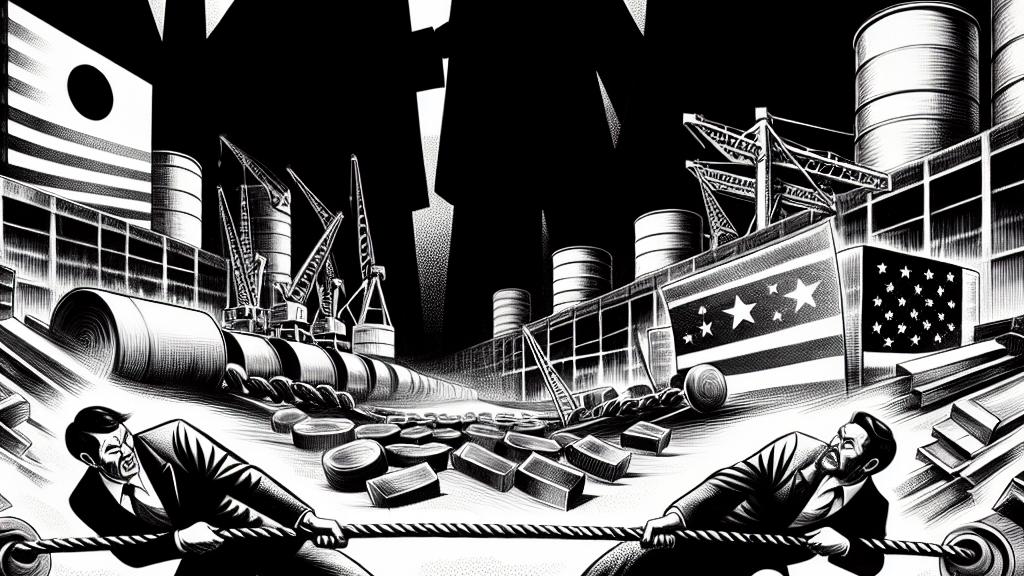Concerns Arise Over Nippon Steel's Acquisition of US Steel Impacting US-Japan Relations
Overview
- Nippon Steel's high-stakes bid to acquire US Steel faces daunting opposition based on national security concerns.
- The potential derailment of this deal threatens to sour the vital US-Japan relationship at a crucial diplomatic moment.
- Job security for US Steel employees highlights the interplay of labor interests amidst rising political tensions.

National Security and Economic Ties
In a dramatic twist in international business negotiations, Japan's Nippon Steel is wrestling with fierce pushback against its $14.9 billion bid for US Steel. The Biden administration has taken a hardline stance, arguing that national security is at stake. This sentiment resonates amid fears about China’s growing influence in the steel industry, which serves as a significant backdrop to US policy decisions. As Prime Minister Fumio Kishida prepares for his farewell visit to the US, this episode could present a formidable challenge to an alliance that has long been hailed as crucial. Japanese officials are understandably perturbed; the invocation of national security brings to light the fragility of perceptions surrounding their steadfast partnership with America.
Political Climate and Union Interests
As the United States approaches a pivotal election season, issues surrounding labor rights and job security have surged to the forefront. President Biden’s opposition to the acquisition strikes a chord with unionized workers, who feel strongly that US Steel should remain an American entity to protect livelihoods. A notable example is the United Steelworkers Union, which staunchly opposes the deal, articulating concerns that range from potential job losses to diminished worker rights. Nippon Steel, for its part, has touted promises of job retention and investment, yet skepticism remains palpable among labor representatives. Biden's outreach to labor leaders is not merely symbolic; it signifies a commitment to American workers, emphasizing the necessity of balancing economic partnership with the economic well-being of the workforce.
Implications for the Future
The unfolding conflict surrounding the Nippon Steel acquisition could unveil significant implications for the broader economic landscape between the US and Japan, reshaping future investment dynamics. Should Nippon Steel’s bid fall through, it would likely send a tremor through the international investment community, raising alarms about the viability of foreign investments in the US market. This moment serves as a critical juncture; businesses are compelled to navigate a complex labyrinth of national interests alongside their global ambitions. Experts caution that the intertwining of political maneuvering with business negotiations could tarnish America's allure as an investment destination. Ultimately, this saga not only emphasizes the need for sustainable US-Japan collaboration but also underlines the evolving nature of global economic partnerships in the face of rising geopolitical tensions.

Loading...